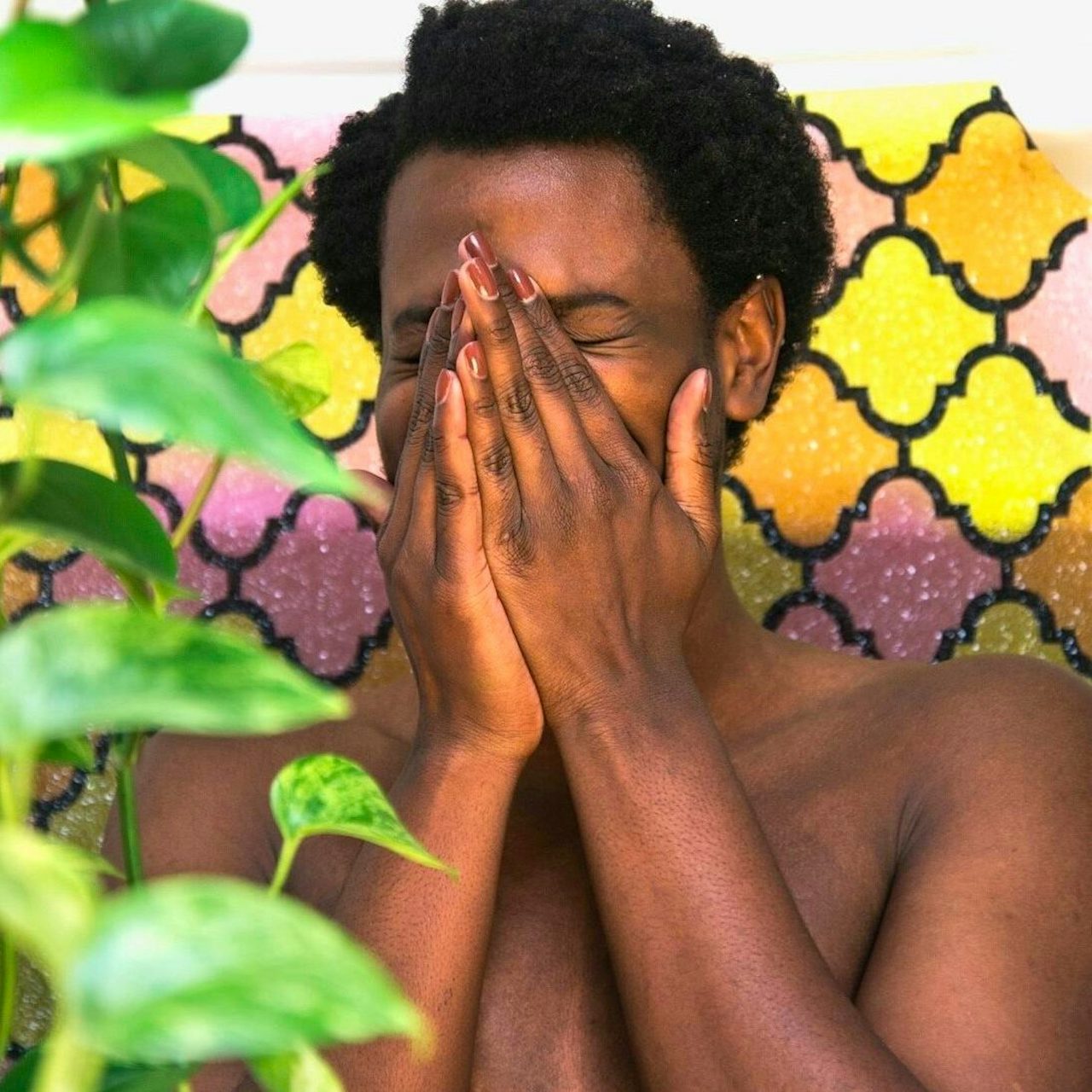Songs of triumph often use despair as a foundation. Rihanna “found love in a hopeless place,” Kendrick Lamar assured us that “we gon’ be alright.” And, on one of the most triumphant songs in the history of popular music, Freddie Mercury admitted to having “my share of sand kicked in my face.” Shamir Bailey, a wünderkind who released his first album two years ago at age 20, spent last weekend mired in his own discontent, only to emerge with a new project, Hope. At 35 minutes, the album lands like a paean to the idea in its title, and sounds as triumphant as anything the singer, best known for effervescent dance songs, has ever produced. In a note on SoundCloud, where he surprise-dropped the project, Shamir wrote, “I made this album this past weekend stuck in my room with just a 4 track feeling hopeless about my love for music.”
Shamir could very well have never made such a delicate, introspective record. By his own admission, he could have stopped making music altogether. “I was gonna quit music this weekend. From day 1 it was clear i was an accidental pop star,” he wrote in his album announcement. “I loved the idea of it, i mean who doesn't? Still the wear of staying polished with how I’m presented and how my music was presented took a huge toll on me mentally.”
After a relatively quick ascent — his self-released 2014 EP Northtown got him signed to XL Records, with which he released the stellar debut full-length Ratchet the following year — Shamir’s output sputtered. Over the past two years, he released just a smattering of promo videos and collaborations.
It is by now a familiar narrative: An artist arrives via a breakout hit and then struggles to escape the shadow cast by their initial releases. It can be a challenge for musicians of all stripes to stray from the formulas that proved successful in the past. Even mega stars like Zayn Malik and Justin Bieber, who have the luxury of religiously devoted fans and enormous star power, face pushback when trying on new musical identities.
For Shamir, the shiny, glistening pop songs that catapulted him to fame, like 2014’s “On the Regular,” became less appealing. He's said that, as a fan of music, he’s long had an affinity for the type of emotionally forthright, slow-burning lo-fi that defines Hope. In a 2015 NME interview, he outlined his love for artists like Alex G and the band Yvette, some of the foremost purveyors of the modern lo-fi resurgence. According to Shamir, a directional shift in his music didn’t seem possible at his label, from which he was dropped. In an interview with Out he said, “This record is why, because this wouldn’t have come out if I was still signed, right now, and I’d probably be super fucking miserable.” (XL Recordings did not respond to a request for comment.)
There isn’t any glib romanticization of lo-fi on Hope — just inspiring, honest songs.
The songs on Hope, released independently and for free, are intimate and striking compositions crafted with analog tools. Shamir made the album using a 4-track recorder, and there are gritty guitar solos and muddy drums throughout. A friend handled its mastering in a day (“big thanks to Kieran Ferris for Mastering an album with an hours notice!” he wrote on SoundCloud). The result is a set of fuzzy tracks imbued with the type of bedroom isolation that is a hallmark of a certain kind of guitar-driven indie artist. Like on previous work, Shamir’s arresting vocals are still very much front and center. But on songs like “Easier” and “One More Time Won’t Kill You,” cascading drums and reverberated bass hiss through a hastily assembled analog setup, providing a distinctly distorted backdrop.
Shamir is processing his life in the open, with an earnest plainness in his songwriting that harkens back to ’90s indie songwriters like Dinosaur Jr’s J.Mascis and The Replacements’ Paul Westerberg. “Rock bottom is a new start / While takin’ shots in the dark,” Shamir sings on “What Else,” the album’s second track. Relying less on extensive production and instead turning imperfection into a malleable instrument of its own, Shamir infuses the grit with a unique sensibility. And while his love of lo-fi could easily be chalked up to millennial nostalgia for a bygone era (one track, “Rain,” is a cover of ’80s college rockers Blake Babies), his vocals suggest something less cynical. There isn’t any glib romanticization of lo-fi on Hope — just inspiring, honest songs.
On “Bleed It Out,” the album’s closer, Shamir’s voice is crisp and each prick of his guitar faintly audible. He told MTV News that he wrote “Bleed It Out” when he was 16, and that he'd always intended for it to be stripped down. “People couldn't wrap their heads around that song, and I'm glad that I was able to release it [with] just guitar, how I wrote it,” he said. “I always sang that song to myself, wishing that I could share it with the world, for literally the past five years of my life."
The album’s cover, shot by a friend, features a shirtless Shamir standing in front of a sheet of stained glass. His nails are painted a deep purple, and his hands are tightly clenched, guarding his face as if he's deep in prayer. Sunlight refracts through the pane, giving him a near-religious radiance. It’s weirdly appropriate: Shamir’s decision to make and release the project on his own was a leap of faith.
There’s a sense throughout Hope that these are songs we shouldn’t be hearing, the type of records shared only with close friends. Shamir has admitted that the album is hard for him to listen back to, and it isn’t surprising. The triumph of Hope is that it exists; it’s a brief and intimate look at an artist pushing the reset button on himself after questioning everything. There is despair everywhere on the album, but only to make way for the future.

